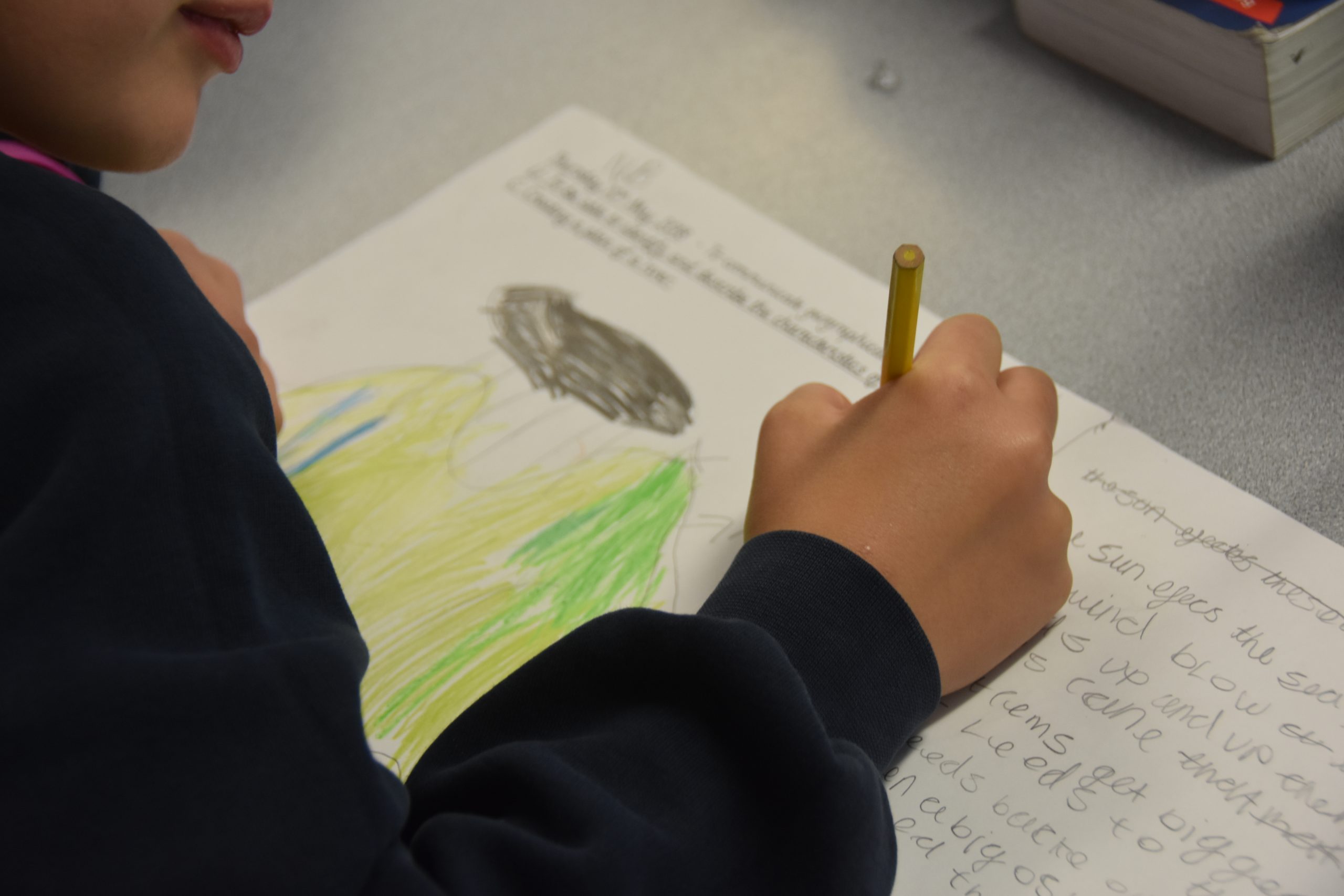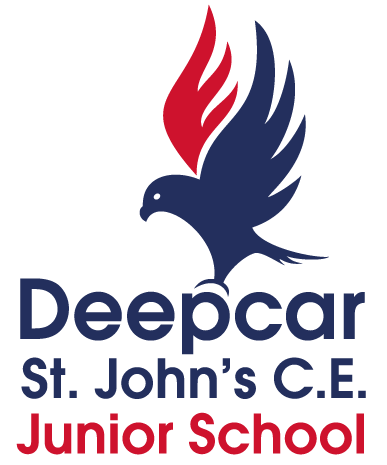English
At Deepcar St John’s Junior School, the teaching of English is the foundation of our curriculum. We believe that a quality English curriculum should develop children’s love of reading, writing and discussion and we strive for a high level of English for all. A thorough grasp of literacy skills is crucial to a high-quality education and we aim to give our children the tools they need to participate fully as a member of society.
Reading Intent
We believe that reading is a key life skill. We are committed to enabling our pupils to become lifelong readers. Because reading is key for academic success, we ensure that we have a consistent approach to the teaching of reading.
By the time children leave Deepcar School, they are competent readers who can recommend books and authors to their friends, have a desire to read a range of genres, including poetry, and participate in discussions about books including evaluating an author’s use of language and the impact that has on a reader.
Reading Implementation:
Children through school take part in structured reading and comprehension lessons where they are exposed to a range of different texts and taught how to demonstrate their understanding and thinking about the texts and authors.
Children have the opportunity to take part in Reading Buddies in which children mix with children from other year groups and share a book together.
Children work through a school reading scheme, with books levelled by reading ability. Through our homework policy, we encourage all children and families to read together at home, commenting regularly in the children’s reading records.
The Deepcar School Library is well stocked and visited by classes regularly.
Children are read to regularly by their class teachers, enjoying a range or authors and genres throughout their time at school to promote reading for pleasure.
Reading Impact
With the implementation of phonics interventions in year 3 alongside the reading comprehension sessions, our aim is for children to become fluent readers by the end of year 3. This way, children can focus on developing their fluency and comprehension as they move through the remainder of junior school.
HeadStart assessments are used throughout the year to provide standardised scores, monitor progress and identify gaps.
As we believe that reading is key to all learning, the impact of our reading curriculum goes beyond the result of statutory assessments. Children have the opportunity to enter the wide and varied magical worlds that reading opens up to them. As they develop their own interest in books, a deep love of literature across a range of genres cultures and styles is enhanced.
Writing Intent
At Deepcar, we endeavour to create a passion for writing. Throughout their time at school, children develop their skills by exploring a range of different genres using a wide variety of models to aid the drafting and editing process. We hope to encourage a real enjoyment of writing in English lessons and in all subjects across the curriculum. The highest standards of writing are expected every time a child writes.
We want every child to leave our care possessing the skills of a writer with the ability to write fluently in the voice of an author.
Writing Implementation
Children are taught to think about the impact they want their writing to have on the reader and develop an understanding as to how they will achieve this.
Through structured writing development lessons – based on a systematic approach developed by the Literacy Consultant Teresa Heathcote, children develop an increasingly wide varied bank of vocabulary and an excellent knowledge of writing techniques, which in turn extends detail and description in their writing. Children are encouraged at all times to deepen the moment – look for opportunities to improve or extend their ideas.
A wide and varied bank of stimuli are used to inspire children’s writing, including stories, authors, video clips, poetry, drama, artwork and curriculum links.
Teachers model the structure and organisation of writing based on each genre they are studying.
Following the National Curriculum, discrete spelling lessons are taught through school– making links with phonics in EYFS & KS1
Whole Class Feedback, 1:1 ‘meetings’ with their class teacher to discuss individual targets, and the time to act upon it, allows children to take ownership of re-reading and improving their writing so that each piece is produced to the best of their ability and better than the last.
Grammar lessons are taught in conjunction with writing lessons and in standalone lessons for areas of need or revision.
Children are encouraged through the reference to year group specific Non-Negotiables, to copy, spell and punctuate accurately in independent writing.
Introducing cursive script from Year 3 and through consistently taught handwriting lessons, presentation skills are developed and practised so that in all work, pride is demonstrated.
In order for children to see progress in writing through their time in school and have aspirations for their own development, writing from all ages is regularly displayed around school.
Writing Impact
The impact of the curriculum on children’s independent writing is assessed in the following areas:
Standards achieved against planned outcomes,
Creativity and children’s ability to extend and deepen their writing,
Children’s understanding and application of the fundamental principles of spelling, grammar and punctuation in their writing.
Children’s ability to independently evaluate, edit and improve their writing.
Our writing curriculum is high quality and well planned to demonstrate progression. If children are working within age related expectations, they are deemed to be making good progress. Writing is assessed at the end of each half term using end of year writing criteria. PITA (Point in Time) assessments are used to assess reading, writing and SPaG against ARE (age related expectations) in each year group. We keep individual records for each child to support target setting. Progress is tracked at half-termly Pupil Progress Meetings and moderation of assessment is completed during PDMs (Professional Development Meetings).
You can find our Subject Information Booklet for English at the bottom of this page along with the English Policy and a Subject Information leaflet for parents.

Please visit our Curriculum Overview page for Subject Policies, Curriculum Booklets and Subject Information Leaflets.
